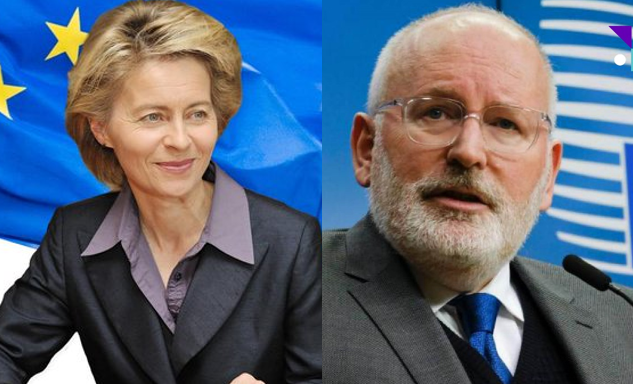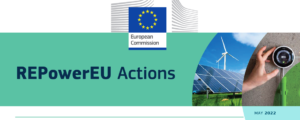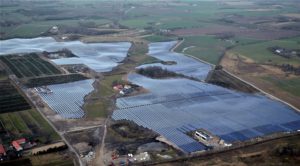Climate neutrality will become binding EU target
April 15, 2020
The European Commission’s implementation plan for Europe’s Green Deal is moving forward in spite of the Covid-19 virus outbreak. The Directorate-General for Climate Action published its proposal for a European Climate Law, including regulations on how to achieve climate neutrality by 2050, in early March, within the expected time frame (see the first attached PDF). This means the Commission has followed up on its commitment to devise a European Climate Pact in the first 100 days of its term. Its hand was strengthened after it received the backing of the European Parliament, which published a climate change resolution on 14 March 2019 to endorse the aim of achieving net-zero greenhouse gas emissions by 2050. The photos show the two people in Brussels who played the key role in this ambitious project: Ursula von der Leyen, President of the EU Commission, and Frans Timmermans, Executive VP for the European Green Deal.
Photos: EU Commission
European industry association Solar Heat Europe has said it appreciates that the Union is taking swift action. The organisation was one of 929 to submit a contribution during the public consultation period between 9 January and 6 February 2020, prior to the publication of the draft European Climate Law. “As part of our contribution submitted in February, we made clear that the European Union must set early milestones if it wants to lay a foundation for a carbon-neutral energy system in 2030,” said Irene di Padua, Policy Officer at Solar Heat Europe. “All infrastructure investments made between now and 2030 will have an impact beyond 2050, so the next decade will be of major importance to avoid a ‘lock-in effect’ benefitting fossil fuels.”
The main objective of the 47-page draft document, titled Proposal for…establishing the framework for achieving climate neutrality and amending Regulation (EU) 2018/1999 (European Climate Law) has been clearly laid out in the first of its 11 articles (see pp. 15 to 21 of the first attached PDF). It says that “this regulation sets out a binding objective of climate neutrality in the Union by 2050”, an allusion to the long-term climate goal specified in the Paris Agreement. This has already been a great achievement in and of itself, since the EU has mostly had non-binding climate goals, and some member states have yet to fully commit to the cause.
Article 2 mentions another important milestone. By 30 June 2021, the Commission will have to assess how to amend EU legislation on implementing the 2030 target so that Europe could see 50 % to 55 % lower emissions than in 1990 and to achieve climate neutrality. “This clearly sets the target higher, to at least 50 %, and leaves some room for another increase,” said di Padua.
Set binding renewable heat targets
The Commission is now holding a second stakeholder consultation until 1 May. Businesses, national and international organisations, and individual industry experts can upload their feedback during this period (for more information, go to https://ec.europa.eu/info/law/better-regulation/have-your-say/initiatives/12108-Climate-Law). Solar Heat Europe is currently preparing its comments on the draft European Climate Law on behalf of the entire solar thermal industry. “Among other things, we will emphasise how important it is to set binding renewable heat targets. This will ensure that delays in replacing fossil fuels with renewable energy can be identified along the way and throughout the huge European heat market and appropriate action can be taken at an early stage.”

The call for a green stimulus package was supported by a wide range of associations, including the European Copper Institute and Solar Heat Europe.
As one of 33 associations, Solar Heat Europe also supported a call for a “green recovery”, which is being discussed as a response to the Covid-19 pandemic. In an open letter, the associations have asked the Commission and other European leaders to consider the possibility of using the planned “stimulus package to accelerate investments in energy efficiency, renewable heating and cooling, electricity, mobility, zero-carbon buildings and industrial processes” (see the second attached PDF).
More information:


